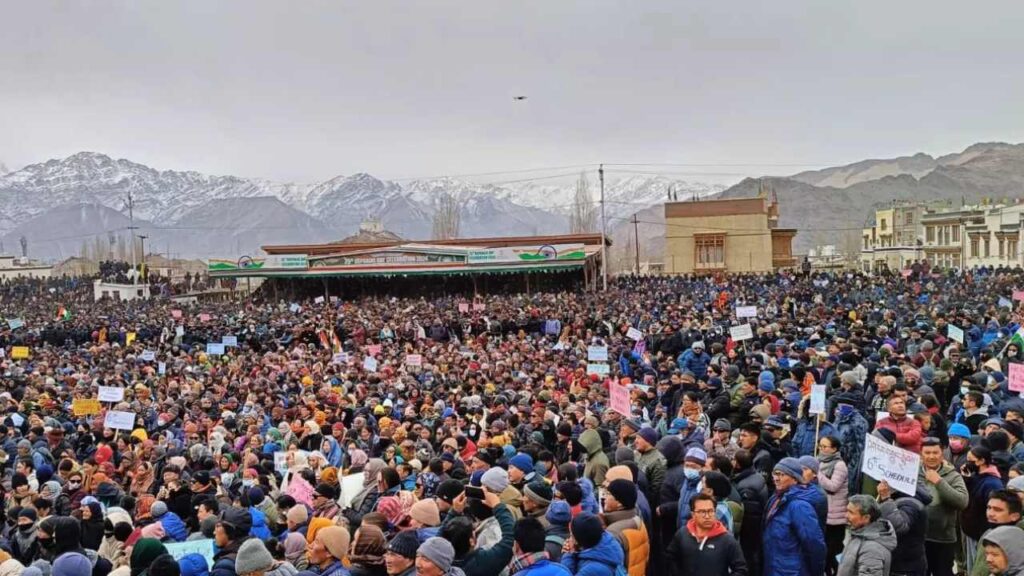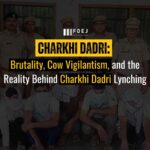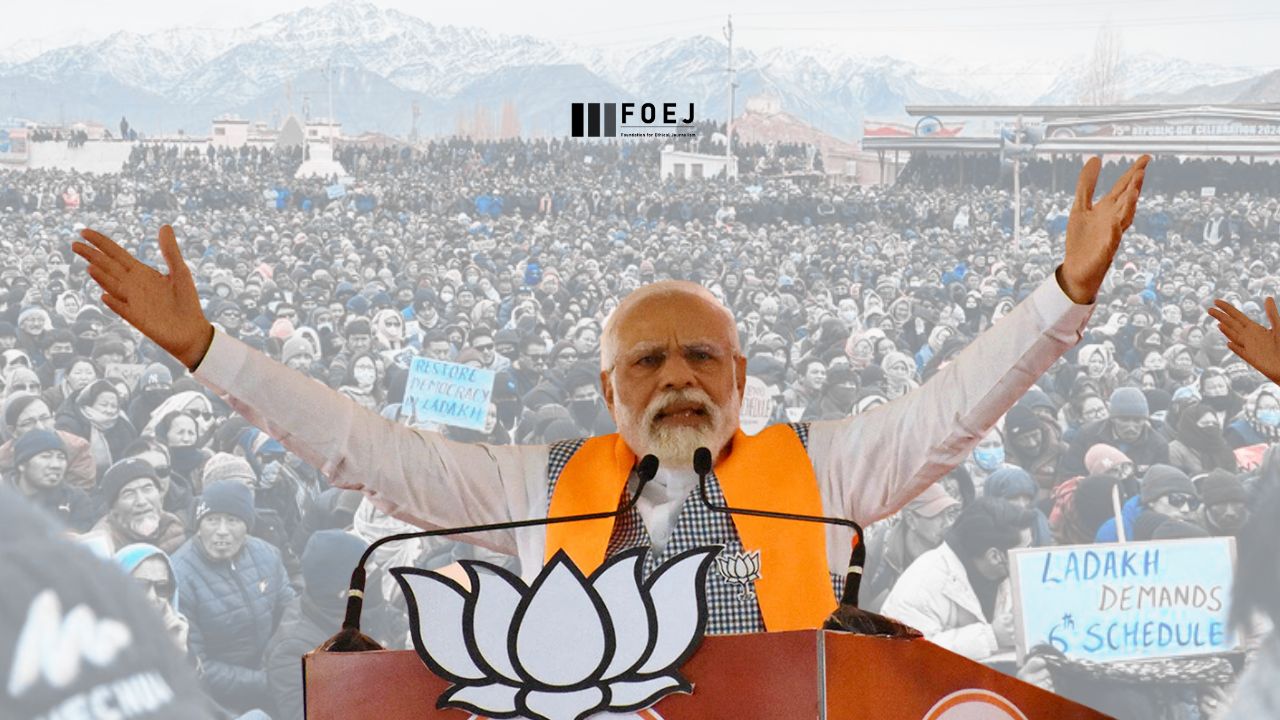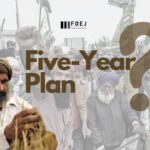In a rally today, Prime Minister Narendra Modi announced that Article 370 was the biggest hurdle in the development of the state. The article was abrogated on August 5, 2019 and received critism around the country by politicians and activists.
Talking about the development throughout the Union territory, he acknowledged how the territory was seeing balanced growth in all sectors.
The prime minister announced multiple projects worth over ₹ 32,000 crore for Jammu and Kashmir and projects worth ₹ 13,500 crore for other parts of the country. “The government has reached people’s doorsteps in Jammu and Kashmir for the first time. This is Modi’s guarantee, and this will continue,” he emphasized.

The prime minister said that the BJP government had repealed Article 370, which was the primary obstacle to bringing about comprehensive development in Jammu and Kashmir.
“The wellbeing of the general public cannot be considered by a government whose top concern is the welfare of a single family. I’m glad to see that dynastic control is ending in Jammu and Kashmir,” he remarked.
“A developed India means a developed Jammu and Kashmir,” PM stated. After article 370 was repealed, according to PM Modi, the common people of Jammu and Kashmir were guaranteed social justice as stated in the Constitution for the first time.
“There is a lot of enthusiasm in the whole world today about developing Jammu and Kashmir,” he stated.
With reference to the projects he either launched or laid the groundwork for, Prime Minister Modi declared that today was historic for Jammu and Kashmir.
“The projects in Jammu and Kashmir will propel the holistic development of the region,” he stated.
According to the Prime Minister, in the past ten years, India has constructed a record number of schools, colleges, and universities, with 50 new degree colleges being established in Jammu and Kashmir alone.
Modi initiated or laid the groundwork for a number of infrastructure projects in Jammu and Kashmir, including those pertaining to roads, trains, aviation, and education.
While IITs, IIMs, and central universities are involved in projects for different regions of the nation,.
Along with meeting program participants, PM Modi also gave appointment letters to roughly 1,500 recently hired Jammu and Kashmir government employees and engaged with recipients of various schemes under the ‘Viksit Bharat, Viksit Jammu’ initiative.
Do the protesters in Ladakh agree with the Prime Minister?
On February 3, 2024, thousands of people gathered in Leh and Kargil districts of Ladakh to participate in rallies against the constitutional changes brought about by the reading down of Article 370 on August 5, 2019. The call for a complete shutdown in the region was initiated by the Leh Apex Body (LAB) and Kargil Democratic Alliance (KDA), demanding special rights and the restoration of statehood for Ladakh. This article delves into the key demands, the significance of the protests, and the ongoing dialogue between the government and Ladakh representatives.
Four main demands are at the centre of the LAB and KDA-led movement in Ladakh. First and foremost, they want Ladakh, which was demoted to a Union Territory in 2019, to regain its status as a state. Second, they support adding Ladakh to the Sixth Schedule of the constitution and acknowledging it as a tribe. Thirdly, they want for the districts of Kargil and Leh to have members in parliament. Finally, they stress hiring locals for jobs in order to alleviate the problem of unemployment.
The Union Home Ministry received a proposal for Ladakh’s statehood that attempts to address the region’s financial and socio-political problems. Ladakh’s neglect is exemplified by its absence from administrative changes that followed the abrogation of Section 370.

Job reservations are in high demand in Leh because to the city’s high unemployment rate. Because of bad weather and a lack of job possibilities, unemployment continues even when recruiting boards are set up.
Like neighbouring states like Assam and Meghalaya, Ladakh’s tribal character is intended to be protected by its inclusion in the Sixth Schedule. There are no constitutional safeguards against outside influences for the varied indigenous people.
‘Fast Unto Death’
Sonam Wangchuk, an acknowledged advocate of Ladakh’s constitutional protections, announced on Tuesday that the planned “fast unto death” protest would be reexamined the following week, subject to the outcome of talks with the Central Government concerning their demands, which include the Union Territory’s statehood.
Before starting a hunger strike in support of the demands, Wangchuk stated, “We will call a major public meeting in Leh city on February 26 to either thank the government for recognising the demands of Ladakh’s people or begin a fast unto death if the talks fail.”
This agreement was reached during a meeting between the Union Minister of State for Home, Nityanand Rai, and the High Powered Committee (HPC) for Ladakh. The delegation, which consisted of 14 members, included representatives from the Kargil Democratic Alliance (KDA) and the Apex Body of Leh (ABL), which represent different organisations in the Union Territory.

In addition, the gathering decided to form a joint subcommittee to investigate the requests’ details. “We’ll be watching for the subcommittee meeting’s decision on February 24 and our leaders’ arrival back in Leh on February 25. The next day, if the negotiations fail, we will have a large public assembly in Leh city to thank the administration for fulfilling our requests or to begin our fast till death,” Wangchuk, a recipient of the Ramon Magsaysay Award, affirmed.
Two Lok Sabha seats—one for Kargil and one for Leh—as well as more job possibilities for Union Territory citizens are among the delegation’s priorities. Ladakh currently has one seat in the Lok Sabha.
Ladakh, which was once a part of the former state of Jammu & Kashmir, lost its assembly constituency on August 5, 2019, when Article 370 of the Constitution was revoked. As a result, the area was divided into Jammu & Kashmir and Ladakh, two Union territories.
In December, the team from Ladakh received assurances from the BJP-led Centre about their dedication to expediting the Union Territory’s development and realising the ambitions of its people. This guarantee was given in the course of a discussion with the HPC for Ladakh.
Established under Rai’s presidency, the HPC for Ladakh was given the responsibility of discussing ways to preserve the unique culture and language of the area while taking its strategic and geographical importance into account. The HPC is also tasked with protecting land and jobs, advancing inclusive development, strengthening the authority of the Ladakh Autonomous Hill Development Councils (LAHDCs) in Leh and Kargil, and investigating constitutional protections.
Ladakh-based organisations had long pushed for its own Union Territory, a desire that was fulfilled on August 5, 2019. However, to highlight their main objectives, the KDA and the ABL have held rallies in a number of locales, including Jammu, Ladakh, and New Delhi.









